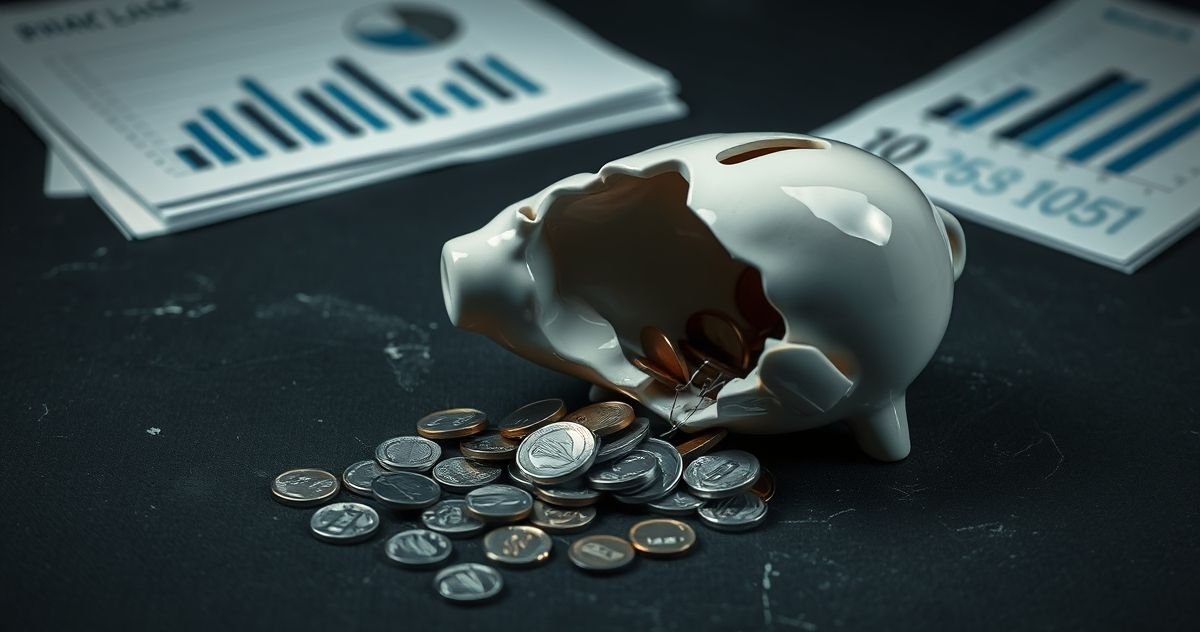Understanding Loan Default and How to Avoid It
Failing to make your loan payments as agreed can have severe and lasting effects on your financial well-being. When you enter into a loan agreement, you commit to a series of payments over a set period. If you can no longer meet these obligations, you risk defaulting on the loan.
When Does a Loan Default Occur?
The exact timing of a loan default varies by lender and loan type, but it generally begins after a grace period for a missed payment. Most loans offer a short grace period (often 10-15 days) before late fees are applied. However, prolonged non-payment, typically after 30, 60, or 90 days of missed payments, can lead the lender to officially declare the loan in default. Violating other terms, such as failing to maintain insurance on a secured loan, can also trigger a default.
Consequences of Loan Default
The repercussions of defaulting on a loan are serious and far-reaching:
- Credit Score Damage: Defaulting significantly lowers your credit score, making future borrowing difficult and expensive, with higher interest rates.
- Collection Activities: Lenders or collection agencies will pursue the debt through calls and letters.
- Repossession: For secured loans (e.g., car loans, mortgages), the lender can seize the collateral.
- Legal Action: Lenders may sue to recover the debt, potentially leading to wage garnishment or asset seizure.
- Foreclosure: In the case of mortgages, default can result in the loss of your home.
- Deficiency Balance: If the sale of repossessed collateral doesn’t cover the outstanding loan amount, you may still owe the difference.
Real-World Scenarios
- Auto Loan: Missing payments can lead to your car being repossessed, and you may still owe the remaining loan balance.
- Student Loan: Defaulting on student loans can result in wage garnishment or the seizure of tax refunds.
- Mortgage: Failure to pay your mortgage can lead to foreclosure, causing you to lose your home.
Who is Affected?
Loan default can impact anyone with a mortgage, auto loan, student loan, personal loan, or even significant credit card debt. It affects individuals across various financial situations.
Preventing Loan Default
Proactive measures can help you avoid default:
- Budgeting: Create and stick to a budget to ensure you can cover loan payments.
- Emergency Fund: Build savings to handle unexpected expenses without missing payments.
- Communicate: If you foresee payment difficulties, contact your lender before missing a payment to discuss options like deferment or forbearance.
- Prioritize Payments: Make loan payments a priority, especially during tight financial periods.
Steps to Take if You’re Already in Default
If you’ve missed payments or are facing default:
- Contact Your Lender: Immediate communication is key. Explore hardship programs or alternative payment arrangements.
- Understand Options: Investigate loan modifications, refinancing, or repayment plans.
- Seek Advice: Consider consulting a non-profit credit counselor for guidance.
Common Misconceptions
- One missed payment is okay: A single late payment negatively impacts your credit and may incur fees, starting a downward financial spiral.
- Lenders want you to default: Lenders prefer repayment; defaults are costly for them.
- There’s no recourse after defaulting: Actively working with your lender can mitigate damage and potentially help you recover.
By understanding the risks and taking preventative actions, you can safeguard your financial future against the severe consequences of loan default. For more information on managing financial difficulties, explore resources from the Consumer Financial Protection Bureau.
Frequently Asked Questions
Q1: How long can I be late on a payment before it’s considered a default?
A1: While lenders have grace periods, a loan is typically considered in default after a specific number of consecutive missed payments, often 30, 60, or 90 days, depending on the loan agreement.
Q2: Can defaulting on a loan affect my family?
A2: Yes, especially with secured loans or if legal actions like wage garnishment are pursued, which can impact household finances and stability.
Q3: What’s the difference between being ‘late’ and ‘in default’?
A3: Being ‘late’ usually refers to missing a payment within the grace period, often resulting in late fees and a minor credit score impact. ‘Default’ is a more severe status, occurring after prolonged non-payment or violation of loan terms, with much graver consequences.

